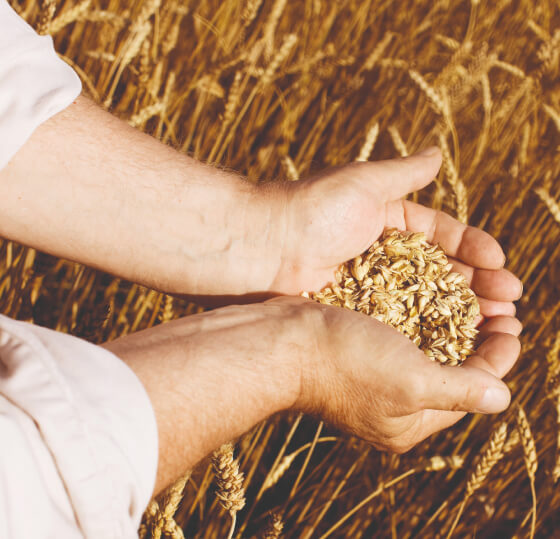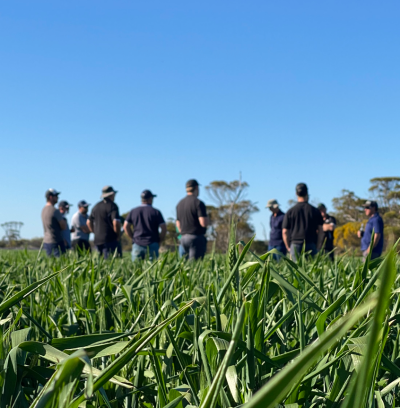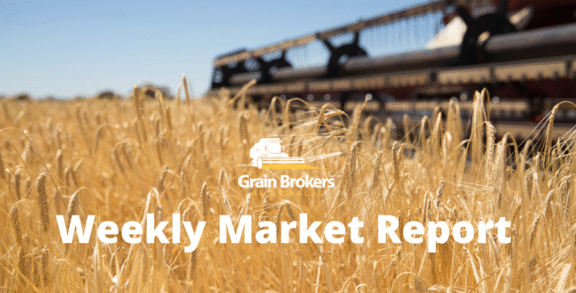Canadian canola farmers are reeling from last Tuesday’s shock announcement by China to impose hefty anti-dumping duties on canola seed imports from Canada, escalating the yearlong trade dispute that began with Ottawa’s imposition of tariffs on Chinese electric vehicle imports last year.
The news of a preliminary 75.8 per cent duty, to take effect from August 14, comes after a Chinese government investigation reportedly made a preliminary finding that dumping had occurred. China’s Ministry of Commerce (MOFCOM) said that an anti-dumping probe was launched in September 2024 and had found that Canada’s agricultural sector, in particular the canola industry, had benefited from “extensive government subsidies and preferential policies” that distort demand and lead to oversupply.
China is the world’s largest importer of canola seed and has traditionally sourced almost all of its annual import requirements from Canada. In 2024, China purchased 5.9 million metric tonne of Canadian canola seed, around two-thirds s of the nation’s total export campaign. While canola is Canada’s second largest crop by area, it is the country’s most valuable field crop with farm cash receipts of CAD12.9 billion in 2024.
In a joint statement issued by Canada’s International Trade Minister Maninder Sidhu and Agriculture Minister Heath MacDonald, the Canadian government disputed the preliminary anti-dumping ruling, saying it was “deeply disappointed with China’s decision.”
“We do not dump canola,” they said. “Our hard-working farmers provide world-class food to Canadians and international trading partners. Canadian canola products meet the highest standards, and our inspection systems are robust. Canada is committed to ensuring fair market access for our canola industry, and we remain ready to engage in constructive dialogue with Chinese officials to address our respective trade concerns.”
In response, a spokesperson from the Chinese embassy in Ottawa is reported to have stated, “China has always exercised prudence and restraint when using trade remedies to safeguard fair and free trade. China will continue to conduct the investigation in accordance with the law, fully protect the rights of all stakeholders, and make a final determination objectively and impartially based on the investigation results,” the embassy said.
The investigation formally ends in September, giving Beijing until then to make a final decision on the duties, though it does have the option of extending that deadline by a further six months. A final ruling could result in a different rate or overturn Tuesday’s decision. However, if the steep duties are maintained, the Chinese market would effectively be closed to the Canadian canola industry, a market valued at as much as CAD5 billion annually.
On March 8 of this year, the Chinese government announced new tariffs on several Canadian products. Among them were canola oil and canola meal, each targeted with a tariff of 100%, while tariffs for canola seed remained unchanged at the time.
The tariff has had an immediate impact on Canadian producers, with grain buyers reported to have pulled new crop grower bids as soon as the anti-dumping measures were announced. The November canola futures contract on the Intercontinental Exchange (ICE), the global canola trading benchmark, also fell 6.5 per cent to a four-month low when the news broke. Although it did rally into Friday’s close to finish the week 2.9 per cent below Tuesday’s open.
The timing of MOFCOM’s latest tariff escalation appears deliberately timed to maximise pressure on Canadian policymakers, coming as the new crop harvest approaches and just a couple of months before the government’s one-year review of the electric vehicle tariffs imposed in October last year. Despite the United States leading the Western charge on electric vehicle tariffs, Beijing has chosen thus far to focus its retaliation primarily on Canada while leaving US tariffs largely unanswered.
Replacing the Canadian canola flow will be difficult in the short-term, but it does provide a golden opportunity for Australia, the world’s second-largest canola exporter. Australia has been shut out of the Chinese market since 2020 due to phytosanitary concerns around the spread of the plant fungal disease known as “blackleg”. With a few trial cargoes on the books, the extended freeze on Australian canola trade to China could be over, with renewed market access a distinct possibility by the time new crop supplies become available for shipment in November.
However, with the Australian carry-out expected to down to fumes in the leadup to this year’s harvest, and demand from Australia’s traditional markets such as the European Union, the United Arab Emirates, Pakistan and Japan likely to remain strong, entirely replacing Canadian canola flow into China will be impossible without some drastic changes to traditional international trade flows. On a volume basis alone, China’s imports in the 2024 were almost 95 per cent of Australia’s entire export program, the nation’s second biggest calendar year shipping campaign on record.
If the tariff remains in place beyond the September deadline, Canada will be hungry for new markets. It seems logical that they will look to price more competitively into the EU in particular, which could simply mean an origin swap where Australia increases shipments to China at the expense of the EU, and Canada does the opposite.
Of course, this does assume that China relaxes the current restrictions on Australian canola, Canada has sufficient supplies of the preferred non-genetically modified seed, and the EU is satisfied that Canadian production meets the required sustainability and low emissions thresholds. Under the EU’s 2009 Renewable Energy Directive, all biofuel feedstocks supplied to the EU must be certified as sustainable by an approved scheme, such as the International Sustainability and Carbon Certification (ISCC), which Australian growers widely adopt.
Nevertheless, while China is an extremely important destination for Australia’s agricultural exports, it has been on the receiving end of Beijing’s belligerent anti-dumping stick in 2020 when similar allegations were made with regards to barley. The repercussions of the resultant ban for growers and exporters were widespread. Australia will rightly be very protective of existing markets and relationships in the global canola sphere, and it is highly unlikely that the trade will be willing to move all of its eggs into the highly volatile China basket.
Call your local Grain Brokers Australia representative on 1300 946 544 to discuss your grain marketing needs.
Written by Peter McMeekin.





